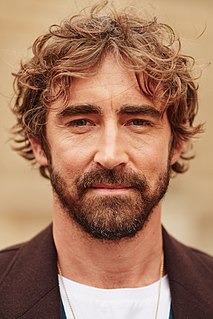A Quote by Paul W. S. Anderson
I find it terribly distracting in movies when people do accents, I must say, unless it's terribly serious and the story is rooted in South Africa and you're doing a South African accent. But in period movies I think nothing can be more distracting than people doing accents.
Related Quotes
I think people are really picky about English accents. When a Brit comes over here and kind of does an OK American accent, everyone's like, 'You were great! Fantastic!' But in England, even if you were doing a pretty good accent, they're like, 'But where are you from?' 'London.' 'What part of London?' Accents are really precious over there.
When I was in government, the South African economy was growing at 4.5% - 5%. But then came the global financial crisis of 2008/2009, and so the global economy shrunk. That hit South Africa very hard, because then the export markets shrunk, and that includes China, which has become one of the main trade partners with South Africa. Also, the slowdown in the Chinese economy affected South Africa. The result was that during that whole period, South Africa lost something like a million jobs because of external factors.
I'd never gotten to do an accent for anything that I've done, so that was really appealing because I love doing accents. Ever since I was a kid, I made it my business to try to mimic foreign accents, so it was really fun to be able to do that. I was really working on the accent to try to make it really good.
And now South Africa has finally woken up and it is doing great things. And if South Africa becomes the template to what AIDS is in the sub-Saharan continent, then all the other countries are going to follow suit. And Michel Sidibe, who spoke at the breakfast meeting this morning, was saying that there is so much hope for Africa now that South Africa has got its house in order.
I started as an engineer. I migrated to philosophy and international politics. And I did my studies about African - Africa democracy and democratization in Africa, taking Kenya as a model. And then, while I was doing so in 1996 in South Africa, Al Jazeera was established. So they requested me to be an analyst on African affairs.
One of the great things about humor is, you can slip things past people with humor, you can use it as a sweetener. So you can actually tell them things, give them messages, get terribly, terribly serious and terribly, terribly dark, and because there are jokes in there, they'll go along with you, and they'll travel a lot further along with you than they would otherwise.
The international community has to overcome its differences and find solutions to the conflicts of today in South Sudan, Syria, Central African Republic and elsewhere. Non-traditional donors need to step up alongside traditional donors. As many people are forcibly displaced today as the entire populations of medium-to-large countries such as Colombia or Spain, South Africa or South Korea.






































